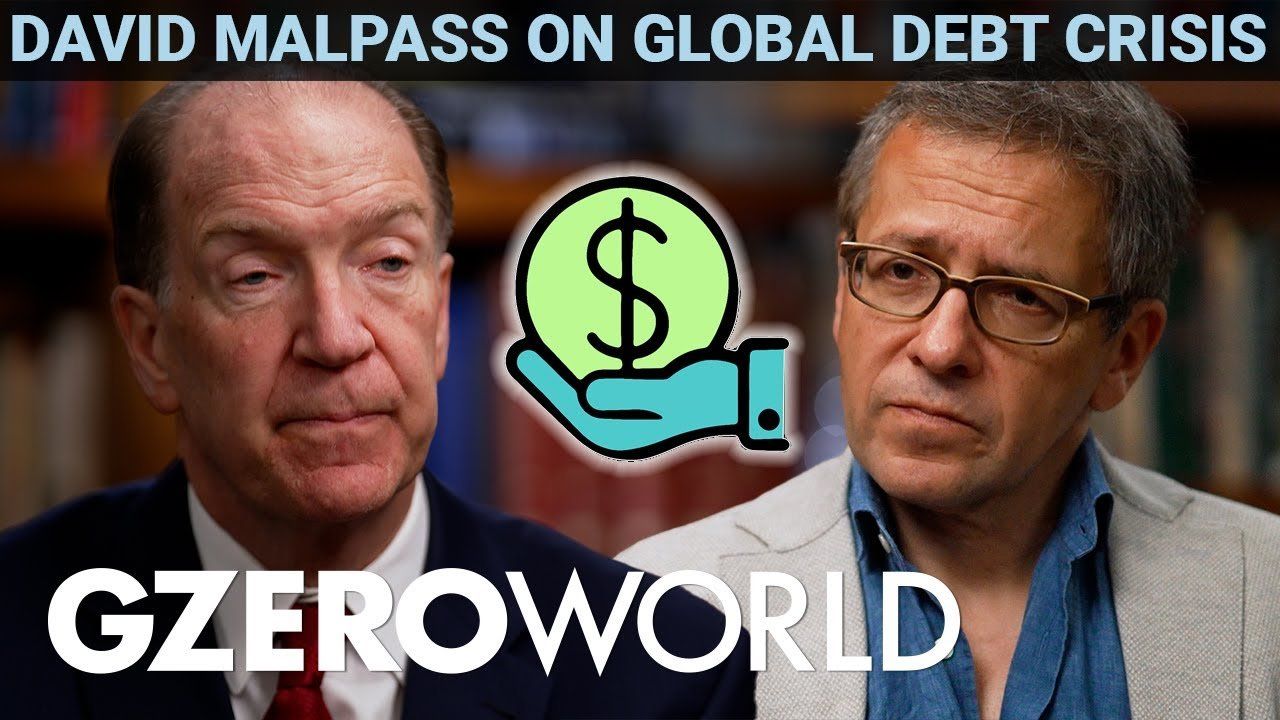GZERO World with Ian Bremmer
World Bank's David Malpass on global debt & economic inequality

World Bank's David Malpass on global debt & economic inequality | GZERO World with Ian Bremmer

The world has a huge debt problem. Economic growth is slowing, but global debt is skyrocketing.
David Malpass sits down with Ian Bremmer on GZERO World for his final interview as president of the World Bank Group to discuss the debt crisis, his tenure at the World Bank, and solutions for combatting growing economic inequality.
Global debt has ballooned in the last two decades to an eye-watering $300 trillion due to years of low interest rates and cheap goods that made money easy to borrow. Then, along came the pandemic which stalled growth and a war in Ukraine that shot up food and energy prices, leading to runaway global inflation.
Rich countries reacted by injecting trillions of dollars of stimulus money into their economies, borrowing huge sums in order to do so.
"So much more of the world's capital is going just to pay off the debt of the advanced economies," Malpass warns, "That leaves less for everybody else, and I think that's a grave concern."
Malpass also spoke about China's emergence in the 21st century as the world's creditor, his proudest accomplishments as World Bank president, and advice for his successor, Ajay Banga. He also points to countries like India and Indonesia, which he believes are poised for significant economic expansion.
Can the world solve the global debt crisis before it's too late? Watch this full interview with David Malpass on GZERO World with Ian Bremmer.
On NFL game days, spending in stadium zip codes jumps by nearly 80%, led by food, drinks, parking, and lodging. Super Bowl host cities often see an additional lift — showing how a single event can deliver real, measurable gains for local businesses. Subscribe to Bank of America Institute to explore the game-day spending data.
In this “ask ian,” Ian Bremmer addresses the aftermath of the US military operation that captured Nicolás Maduro, calling the results so far “pretty successful.”
Putin can't stop won't stop. #PUPPETREGIME
In this Quick Take, Ian Bremmer weighs in on the politicization of the Olympics after comments by Team USA freestyle skier Hunter Hess sparked backlash about patriotism and national representation.